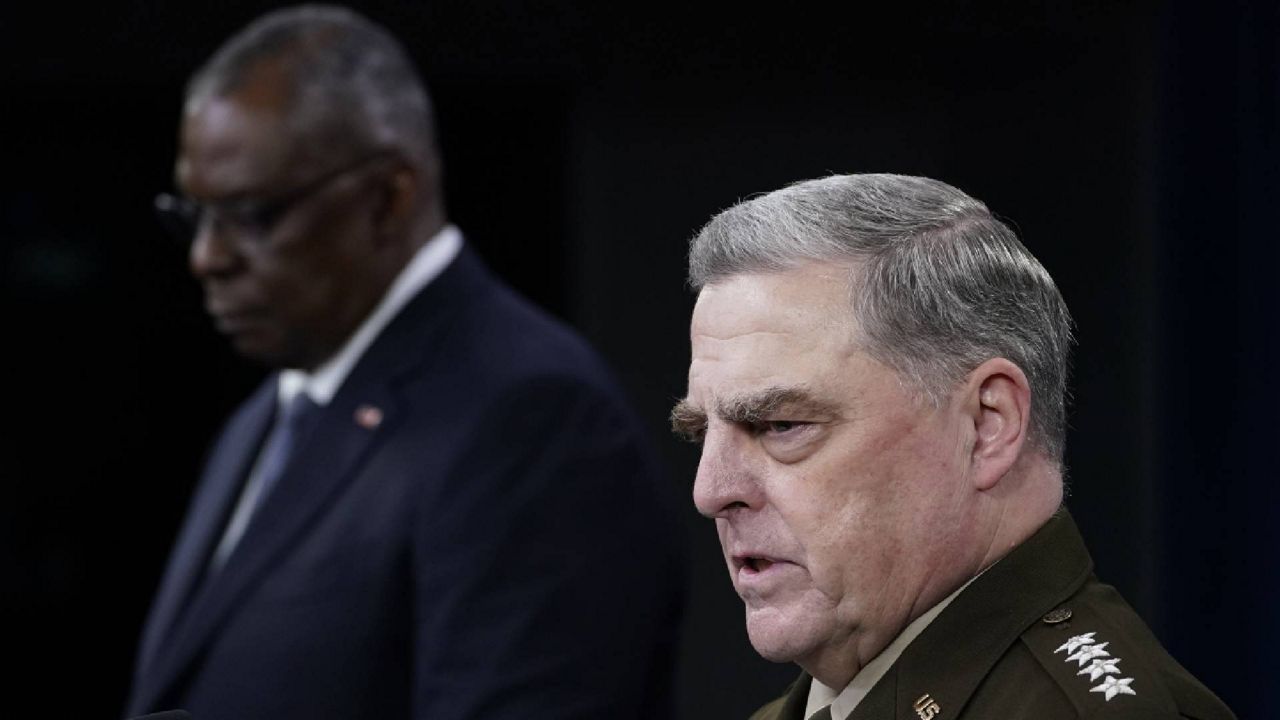The nation’s top military leaders on Wednesday delivered solemn remarks reflecting on the Afghanistan war, honoring the U.S. troops killed and the hundreds of thousands of Americans that served in the 20-year combat mission and acknowledging the recent pain felt throughout the military community as troops completed their final exit.
Secretary of Defense Lloyd Austin spoke publicly for the first time since the U.S. finished its withdrawal on Monday, speaking directly to the soldiers, veterans and families impacted by America’s longest war and acknowledging that the Pentagon would assess the tumultuous end of the mission in the coming days.
“I know that these have been difficult days for many of us,” Secretary Austin said. “And as we look back as a nation on the war in Afghanistan, I hope that we will all do so with thoughtfulness and respect.”
Austin recounted the difficult mission carried out by the last troops in Afghanistan: the airlift of more than 124,000 civilians, the largest air evacuation ever executed by the United States.
“They ran an international airport. They sped up visas. They fed the hungry. They comforted the desperate. And they got plane after plane after plane into the sky,” Austin said. “Our forces risked their own lives to save the lives of others. And 13 of our very best paid the ultimate price.”
Joint Chiefs of Staff Chairman Mark Milley similarly reflected on the war’s final days and years that preceded them.
“For those who have supported us, these have been incredibly emotional and trying days, and indeed years,” he said. “We are all conflicted with feelings of pain and anger, sorrow and sadness, combined with pride and resilience.”
He later added: “When we see what has unfolded over the last 20 years, in the last 20 days, that creates pain and anger. Mine comes from 242 of my soldiers killed in action.”
Milley also spelled out the deadly, violent and sometimes-unseen impact of the war over the last two decades: 2,461 service members killed, 20,691 wounded and “untold thousands of others” that suffer the “invisible wounds of war.”
“There are no words that I or the secretary or the president or anyone else will ever do to bring the dead back. But we can always honor them,” he added. “For any soldier, sailor, airman or Marine, and their family — your service mattered and was not in vain.”
Secretary Austin later said that he and other military officials would be reflecting on and evaluating the end of the war in the coming days.
“We will do what we always do, and that is to look at ourselves and do after action reviews,” the secretary said. “We want to make sure that we learn every lesson that can be learned from this experience. But I want to take the time to do it the right way.”
Secretary Austin and Chairman Milley also repeated a message from other officials in recent days — that while the military mission in Afghanistan is over, a diplomatic one has begun to try and continue to evacuate the remaining few hundred Americans inside the country as well as thousands of Afghans who worked alongside U.S. troops.
They committed to working with the Department of State to do so, although the details of how those evacuations will continue under Taliban rule are unclear.
“I can tell you from personal experience that this is a ruthless group,” Milley said. “Whether or not they change remains to be seen.”



